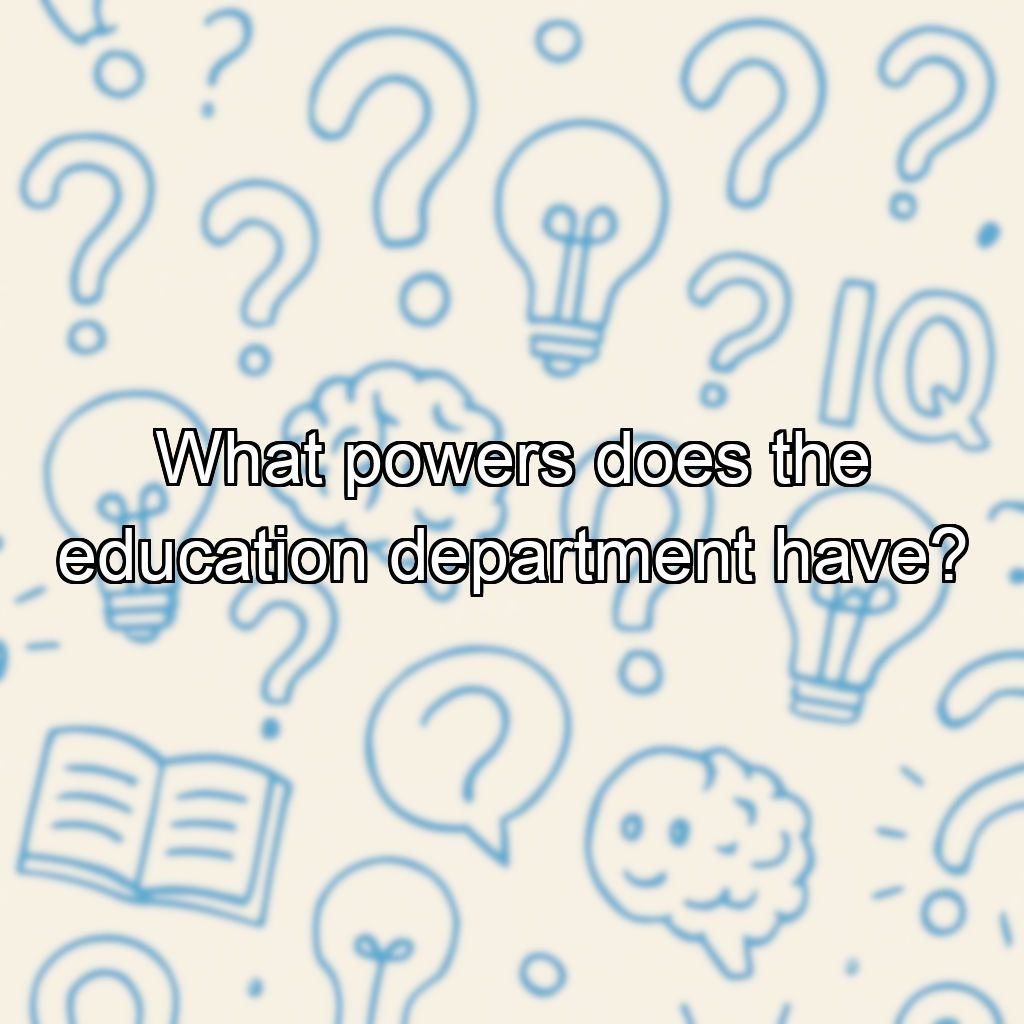What powers does the education department have?

Overview of Education Department Powers
The powers of an Education Department vary depending on the country or region, but generally include a range of responsibilities aimed at overseeing and regulating education systems. These powers typically encompass the following:
Policy Development and Implementation
The department formulates educational policies, curricula, and standards, ensuring consistency and quality across schools and institutions.
Regulation and Oversight
It regulates the operation of schools, colleges, and universities, including accreditation, licensing, and compliance with educational standards.
Funding and Resource Allocation
The department allocates government funding to public educational institutions and manages financial resources to support various educational programs.
Teacher Certification and Professional Development
It oversees teacher licensing, certification processes, and offers or mandates professional development initiatives for educators.
Student Welfare and Support Services
Responsibilities include ensuring student safety, providing special education services, and supporting student health and well-being.
Data Collection and Research
The department collects educational data, conducts research, and uses this information to improve educational policies and practices.
Legal Authority
It has the authority to enforce educational laws, resolve disputes, and impose sanctions when necessary.
Partnerships and Community Engagement
The department collaborates with other government agencies, community organizations, and stakeholders to promote educational development.